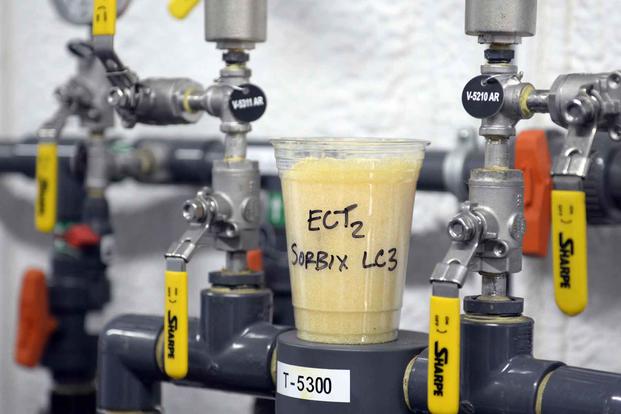Air Force lawyers are fighting an emergency order from the U.S. Environmental Protection Agency (EPA) that requires the agency to clean up contaminated drinking water in Arizona. They are citing a recent Supreme Court ruling limiting regulators’ powers as justification for bypassing the order.
In a brief last month, Air Force lawyers argued that a landmark court decision in June in Loper Bright Enterprises v. Raimondo — which limited the power of regulators by giving courts the authority to interpret ambiguous laws (known as the “Chevron deference”) — rendered moot the EPA’s order for the agency to clean up contaminated water from Tucson International Airport.
“In this regard, the Supreme Court’s recent decision makes clear that EPA’s interpretation of these statutory provisions is not entitled to deference,” Air Force lawyers wrote, citing the recent ruling. “EPA will not benefit from a ‘Chevron principle’ in such proceedings.”
Read more: Soldiers are increasingly having trouble accessing educational benefits in light of fall enrollment deadlines
In the 1980s, a 10-square-mile area around Tucson International Airport and military installations was designated a Superfund site by the EPA. Groundwater was contaminated by “former aircraft and electronics manufacturing and aircraft maintenance,” “fire drills” and “chemical spills from unsealed landfills” at Air Force Plant 44 and Morris Air National Guard Base, the agency’s website says.
Joshua Alexander, an EPA press officer who shared the letter with Military.com, said Monday that trichloroethylene and 1,4-dioxane have been detected in the past and that more recently, concentrations of per- and polyfluoroalkyl substances – known as PFAS or “forever chemicals” because they do not break down in the environment and accumulate in the body – have been detected in the environment and groundwater.
Potential adverse health effects of PFAS include kidney and testicular cancer, increased cholesterol levels and changes in liver enzymes, according to the Centers for Disease Control and Prevention.
“EPA is currently reviewing this correspondence and preparing a response,” Alexander said, referring to the Air Force’s response to the agency’s order. “EPA will continue to perform its oversight role and use its authority to protect the public health.”
The EPA issued an order to the Air Force and Air National Guard on May 26, citing the Safe Drinking Water Act, and required the forces to submit a water treatment plan for PFAS within 60 days of the order.
That May order said the underground drinking water source contained PFAS concentrations of up to 53,000 parts per trillion. EPA standards set an allowable level of between 4 and 10 parts per trillion.
But the service resisted, culminating in a recent letter citing the Supreme Court decision.
“Enforcement of the order will not withstand scrutiny, either in an administrative proceeding or in federal court,” the letter states.
In its letter against the order, the Air Force also argued that “the treated water poses no ‘immediate’ or other threat to the public.”
Environmentalists argued after the Supreme Court’s decision in late June that the decision could harm a number of regulators vying for control.
“This is a profound change, and a terrible one,” said David Doniger, senior attorney for the nonprofit Natural Resources Defense Council, in a statement at the time of the ruling. “Whether it’s making food safer, air cleaner, or prescription drugs safe, agencies must be able to respond to the complex problems the modern world presents us with. This decision is deeply destabilizing and leaves politics – and public health – at the mercy of the individual preferences and political biases of irresponsible judges.”
Despite the service’s opposition to the EPA contained in the letter, Laurel Falls, an Air Force spokeswoman, told Military.com on Monday that the service will meet its obligations.
“The Air Force will continue to meet its obligations under the federal Comprehensive Environmental Response, Compensation and Liability Act and the Safe Drinking Water Act while working with the City of Tucson, regulators and stakeholders on a regional solution for the people of Tucson,” Falls said.
News that the Air Force is fighting back against the EPA’s order comes after the Air Force publicly announced it would implement new federal standards in its own PFAS testing and cleanup efforts. Since 2015, the Department of the Air Force has found that 191 of 204 inspected facilities released PFAS into the environment, Military.com previously reported.
Related: In response to stricter federal guidelines, the Air Force is increasing testing for PFAS contamination
The story continues

